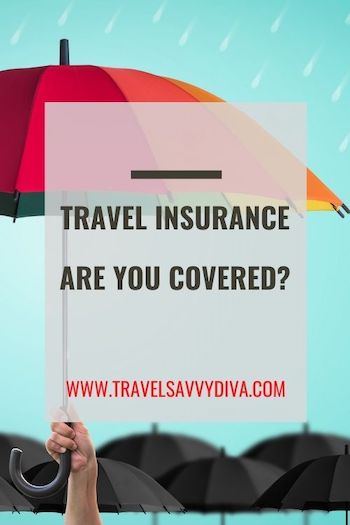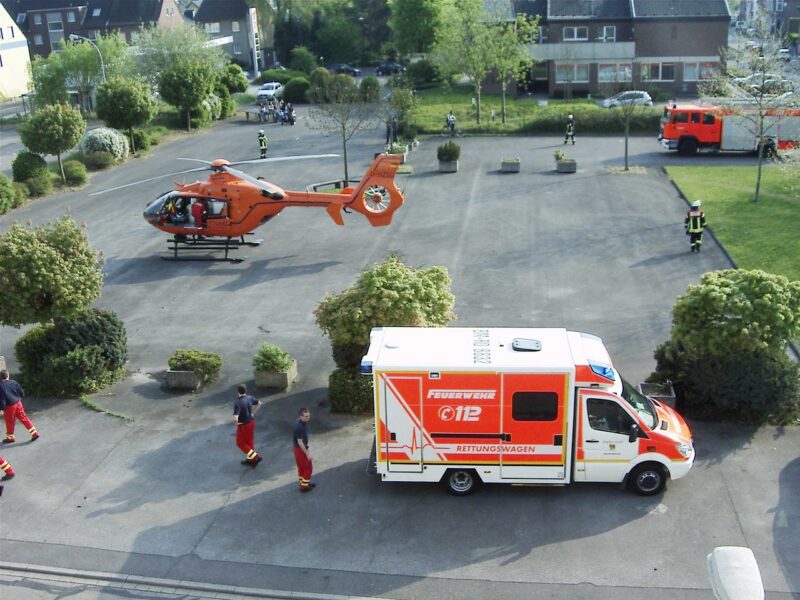Why take out travel insurance?
In these times of frequent travel it is easy to forget, or simply not bother to take out travel insurance, especially for short trips.
If you are travelling to a country which has a reciprocal health agreement with your country of residence, there is the argument that it is not necessary to take out travel insurance but remember, it is not just health cover you may need.
Travel insurance will also cover you for theft, robbery from your accommodation, lost bags and delayed flights.
Cover also includes cancellation of your trip and in most cases interruption of your trip.
If you were to be involved in an accident overseas you would be covered for emergency repatriation if you could not travel home as planned.
On the other end of the scale, if you or your travel partner were to pass away whilst overseas, repatriation cover would ensure you don’t have to pay out a substantial amount of money to have the remains returned home.
Areas to particularly consider in relation to medical cover
Much depends on where in the world you are resident. If you are a US citizen travelling in the US, your medical insurance is likely to cover you throughout all states. Same applies to EU citizens travelling to other EU countries, reciprocal agreements are in place throughout member countries as long as you use a state medical facility and not a private hospital.
Reciprocal agreements are also in place for British citizens in a number of non-EU countries, the full list can be found here.
If you are a US citizen with domestic medical insurance, you are likely to find this does not cover you outside the US although there are some exceptions and in these cases it is often only for emergency medical expenses.
Non-US citizens travelling to the US would be crazy not to take out travel insurance prior to the trip. Health care is mind-numbingly expensive in the US and you could find yourself in a situation where you are unable to find the funds to pay the bill.
I was hospitalised in New York for around five hours with stomach pains and was presented with a bill for 5,000 US dollars, thankfully I was a flight attendant on a layover so the costs were covered.
Travellers planning overland tours or cruises should definitely take out travel insurance as your trip is likely to take you to numerous countries with varying standards of state health care. Also your bus/ship is unlikely to wait for you so you would need cover to rejoin the tour/cruise or be repatriated home.

Read the small print, then read it again!
When choosing travel insurance you will probably either take out the one offered to you by your travel agent, airline or tour/cruise company. Or many people will spend hours trawling the internet for the best deal/cover.
The policy documents will arrive in your inbox and you may or may not print the reams of paper with all the ‘boring info’ and confusing blurb but never actually read it.
I can’t stress enough how important it is to read the policy wording and check exactly what you are covered for and what is excluded.
The policy may state you are covered for medical expenses for example throughout Europe. What is doesn’t say (unless you read the small print) is that you must go to a state hospital for treatment and not a private facility as this is not covered.
So, when you are lying in the back of the ambulance having tripped and fallen after a few too many sangrias, you must insist that you are taken to the local state hospital and under no circumstances should you be taken to a fancy private facility!
Remember, particularly in European holiday destinations, the hotels, tour operators, the nice local private doctor, even the ambulance crew will be on some kind of commission kickback off these fancy private facilities so it is in their interests to take you there, rather than the state medical centre.
Expensive mistakes
Some friends of mine fell foul of this ‘scam’ while on a long-stay holiday in southern Spain. The lady felt dizzy and very unwell for some days (nothing to do with sangria!) before asking the hotel reception staff to call a doctor. The doctor came, ‘assessed’ her for five minutes and relieved her of 100 euros, called an ambulance which took her directly to a plush private hospital where she spent 24 hours and was presented with a bill for 3,000 euros.
The insurer initially refused to pay, despite the fact she followed all the procedures stated in the policy, ie contacting them as soon as she was hospitalised and liaising with the medical assistance company.
Thankfully with the help/threats from a relative high up in the UK insurance industry, the money was reimbursed but so many people find themselves in the same situation and remain out of pocket.
So I can’t stress enough how important it is to read the full document. If you are unsure about anything related to cover or exclusions, call the insurer and ask them, ideally ask for a response in writing.

Anything to declare?
One way for insurers to reject a claim is to declare that your medical emergency overseas was related to a pre-existing condition.
It is important to be upfront and declare any pre-existing conditions you may have or have had in the past. When you take out the policy you will be asked a series of questions about the state of your health and I strongly advise you to be honest about it. In most cases it won’t increase your premium but the insurer will advise you if any medical care required, relating directly or indirectly to the declared condition would be excluded from cover.
Adrenaline rush
Planning to participate in any extreme sports while you are on holiday? You must also declare any planned activity or take out a specialist extreme sports policy.
Activities such as; white water rafting, bungee jumping, base jumping, water skiing, paragliding, to mention but a few, are often excluded from standard travel insurance cover so make sure you check when you are taking out the policy.
If, whilst on your trip, you have a sudden urge to jump from a high building or hurtle through the rapids, check your cover before signing up. If it is not included then just keep your feet on terra-firma, it’s not worth the risk.
On the piste
Most insurers will have special winter sports policies. Ski cover is classed as high risk due to the nature of the holiday. Imagine how much it costs to airlift someone off the side of a mountain…and therefore you should ensure you have sufficient cover.
If you are an adrenaline junkie and you need an energy fix, you may want to ski ‘off piste’, check your policy as some insurers will only include off piste skiing with an official guide.

Common sense required
Insurers can be notorious in declining claims so do everything you can to avoid having to make a claim although of course things will happen out of your control.
Follow these tips to help you stay safe and healthy to the best of you ability.
- Keep your valuables in the hotel safe where possible
- Don’t become a muggers dream carrying all your valuables in full view and be aware of your surroundings
- Ensure you have specific cover for any items of high value, such as iPhones, laptops, expensive jewellery, drones, cameras etc
- Steer clear of extreme sports unless you have taken out additional cover
- Read the policy wording to check if you are obliged to use a state hospital in case of a medical emergency
- Be aware what you are eating and drinking, food hygiene standards are not globally equal and food that you are unused to could cause you problems.
- In busy bars and nightclubs keep a close eye on your drink so that nobody can slip anything into it
Travellers of a certain age
It’s an unfortunate fact of life but insurance premiums increase as we get older. Standard policies once you reach your 70s can be quite expensive but there is an increasing number of insurance companies specialising in this type of cover. It is worth shopping around and doing research as prices and cover can vary.
Special considerations when choosing cover for over 70s include:
- Cover for medical aids that you may need to take with you.
- Waiting list – if you are waiting for surgery and need to cancel your trip
- Travel companions – if you are unable to travel alone and it is essential you have someone with you.

Annual cover
If you travel frequently you may want to consider an annual travel insurance policy. This means you can easily travel at the drop of a hat without having to worry about getting a policy at the last minute.
The maximum trip length is usually 90 days and there is often no limit on how many trips you can take.
Bear in mind, cover can sometimes be more limited than with a single trip policy and if any of your trips include extreme sports or skiing, you would need to let the insurers know before you travel and probably pay a surcharge.
Make sure you are aware when your annual policy expires.
What is generally not included in cover
Much depends on your insurer and cover can vary hugely but here is a list of what is usually not covered.
- Known health crises – if you book something when a pandemic or health issue related to your destination is known
- Travel against government advice – check your government website
- Loss/expense due to pre-existing conditions – as previously mentioned
- Dental care
- Expense/loss due to psychiatric disorders
- Extreme or risky sports
- Pregnancy or childbirth
- Medical tourism – travel for medical or cosmetic procedures
- Flights/accommodation booked using miles, points or vouchers
- Overbooked flights or accommodation
- Missed flights due to security delays at airport or by not arriving in good time
- Multiple expensive single items
- Natural disasters known before booking the trip
- Last minute changes by accommodation, cruise or tour itinerary
- Bad weather – no you can’t claim because it rained every day on your beach holiday
Making a claim
Claiming on your travel insurance can be a lengthy process and you should request a claims form as soon as possible.
If you have to seek medical help or are hospitalised during your trip you should contact the insurer immediately and you will be expected to liaise with the 24-hour assistance company throughout your stay.
If you are robbed, mugged or if you lose any items during your trip, most insurers will expect you to obtain a local police report and often include receipts for the missing items.
A relatively small expenditure on a premium could save you thousands in the long run.






I can’t imagine not taking out travel insurance but you hear that so many do and then suffer the consequences when something goes wrong.
My husband worked in travel insurance and his brother still does, so many stories of people under insured or not reading the policy.